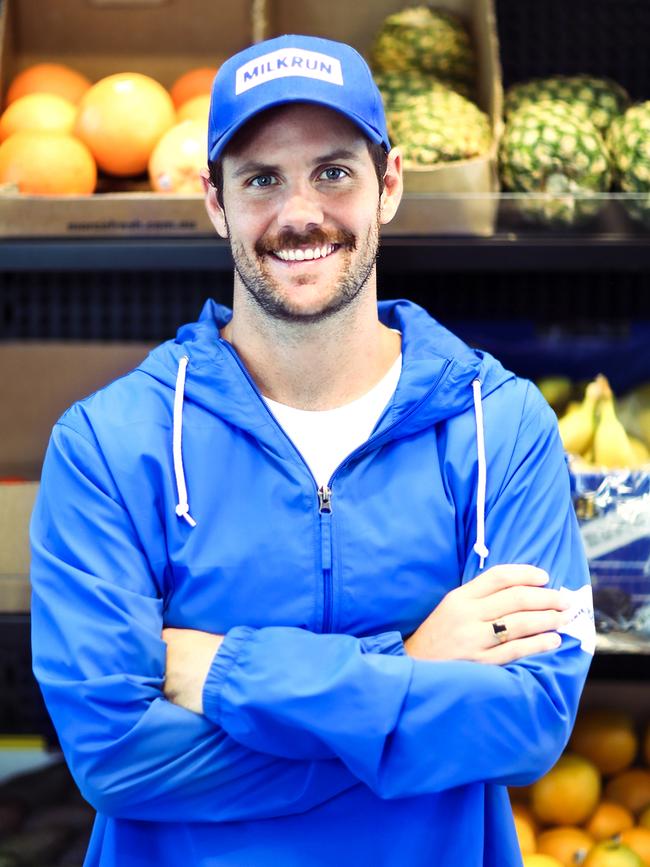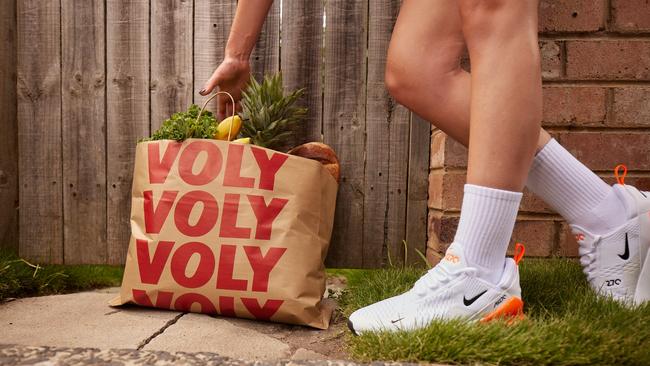On-demand delivery firm Milkrun racing the clock to raise cash
Milkrun has attempted and failed to raise fresh capital twice in the past year, amid a string of closures in the grocery delivery sector.

Milkrun has attempted and failed to raise fresh capital on two separate occasions in the past year, The Australian can reveal, with pressure now mounting on the Sydney-based group to improve its financial situation.
Milkrun last year twice attempted to raise a Series B funding round from investors, who declined to deploy more cash into the start-up, which is yet to reach profitability and had been losing as much as $13 per order according to a slide deck shown to prospective investors.
Milkrun became one of Australia’s fastest growing start-ups last year when it raised a $75m Series A round led by major US fund Tiger Global Management, with participation from Sydney-based venture capital fund AirTree Ventures, as well as Skip Capital and Grok Ventures, the funds associated with Atlassian’s billionaire co-founders Scott Farquhar and Mike Cannon-Brookes.
In recent months, however, the company has been forced to abandon its promise of 10-minute deliveries amid mounting costs. It is the nation’s last remaining grocery delivery start-up following the closures of Send, Voly, Quicko.

A Series B pitch deck shown to investors and seen by The Australian, dated April 2022, details ambitious claims that Milkrun will reach $7bn in total revenue by 2026, and take a 20 per cent market share of Australia’s online grocery, meal kit and alcohol sectors. It also anticipates Milkrun will account for 5 per cent of the nation’s pet, baby, gift and pharmacy industries.
“Milkrun’s target market share is conservative considering forecasted ‘10 min delivery effect’ on the existing experience in each category,” one slide reads.
“Grocery is the first of many categories Milkrun will enter over the next five years as it scales to become the market leader for Q-Commerce … Australia is a ‘winner take all’ market, where first movers have a significant advantage. The Australian grocery market is a massive opportunity with record online growth forecasted over the next five years.”
The company’s riders cost it $42 per an hour, the slides state, which would be slashed to $30 over 12 months by eliminating wet weather bonuses and overtime, along with the addition of government subsidy programs. As opposed to Uber, Milkrun pays its workers in line with retail award rates.
The slide deck notes Milkrun could become “the Super App for Australia”, including cash rewards functionality, payments functionality dubbed Milkrun Pay and e-commerce functionality similar to Amazon or Catch of the Day.
Milkrun chief executive Dany Milham told Nine Publishing last year that, within 10 years, Milkrun would be a bigger business than Coles or Woolworths. “I’m just so ambitious,” he said.
Sources close to Milkrun told The Australian that the mooted Series B fundraise has been unsuccessful despite multiple attempts.
Mr Milham did not respond to a request for comment, and AirTree partner Jackie Vullinghs declined to comment when asked about Milkrun’s current financial situation or whether AirTree was looking for an acquisition. As has been previously reported, Milkrun last year held talks with Uber, Coles and Deliveroo about potential strategic partnerships, none of which have eventuated.

The start-up was founded in 2021 by two former executives at online mattress retailer Koala, Mr Milham and Jeremy Dufner, who exited Milkrun after just seven months, and did not respond to a request for comment.
The company in December added a new feature dubbed Milkrun Market, a next-day grocery service offering products from third-party vendors, which sources told The Australian would push up the start-up’s average basket size. The minimum order amount on Milkrun Market is $50, compared to Milkrun’s typical minimum order value of $20.
The overall health of the grocery delivery sector is looking increasingly shaky, with start-ups closing over the past 12 months, in some cases after burning through millions of their investors’ cash and losing money on every order.
Deliveroo was the highest-profile casualty, collapsing into administration in November leaving its 15,000 local riders and thousands of restaurants in the lurch.
“Deliveroo was unable to achieve sufficient market share in Australia to develop a sustainable business. To do so would require significant ongoing investment in the Australian market,” administrator Michael Korda said at the time.
Mr Milham told The Australian following Deliveroo’s closure that he remained confident in Milkrun’s business model.
This month creditors of failed grocery delivery start-up Voly agreed to a deal to be repaid between just 15c and 27c in the dollar, while assets and customer database were picked up by subscription butcher service Our Cow.
Hall Chadwick administrators Richard Albarran and John Vouris found that Voly may have been trading while insolvent for more than a year, and burned through more than $13m in cash in just 12 months before it collapsed.
Voly offered 15-minute grocery delivery and had 80,000 users across Sydney. The start-up terminated all 112 staff in November.

Voly, which had raised $18m in seed funding from venture capital outfits including Sequoia Capital India and the Australia-based Artesian Capital, entered administration on November 21, with its founders blaming high inflation and Russia’s invasion of Ukraine for its demise.
Rival grocery delivery app Send, meanwhile, fell into voluntary administration less than 12 months after launching, closing in May 2022 after tearing through $11m in cash in just eight months. Send had 300 employees across Sydney and Melbourne and about 75,000 registered users.
Woolworths, Uber and DoorDash are making the most of their access to funding, while refraining from making the kinds of promises made by Milkrun and Voly about delivery times. Woolworths last year launched Metro60, offering delivery under 60 minutes for $5 but relying on Uber to make deliveries. DoorDash has been trialling DashMart sites in Melbourne, Sydney and Brisbane that would serve as bases for rapid deliveries.
Steve Orenstein, chief executive of ASX-listed Zoom2u, said that the demise of Voly, Send and Deliveroo were all inevitable given their reliance on investor funding rather than a focus on building sustainable businesses.
“Deliveroo was operating a business that was likely either making a loss per trip, or a very small margin – not enough to operate,” Mr Orenstein said.
“Add to the mix some serious market competition, changes to investor funding and negative attention on their employment model, and the outcome is dire.
“Deliveroo is not alone with this failed structure, including Send which closed in May, Voly’s folding and even Milkrun, who claim to be thriving, are all examples of businesses who haven’t fully thought through the logistics of how that business will make money,” he added.
“This fate is unavoidable with a faulty business model.”






To join the conversation, please log in. Don't have an account? Register
Join the conversation, you are commenting as Logout